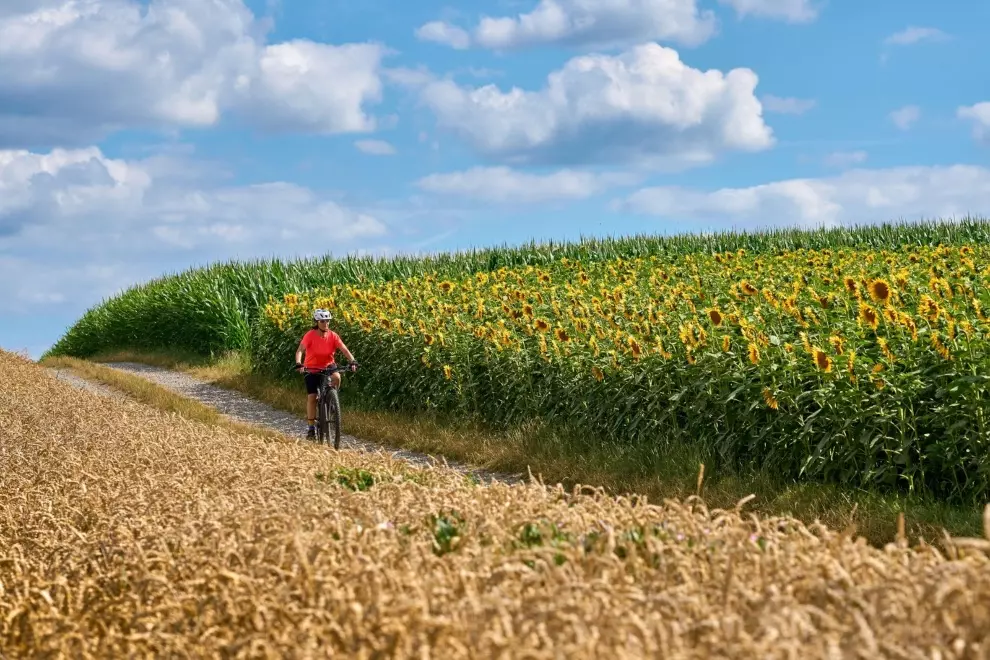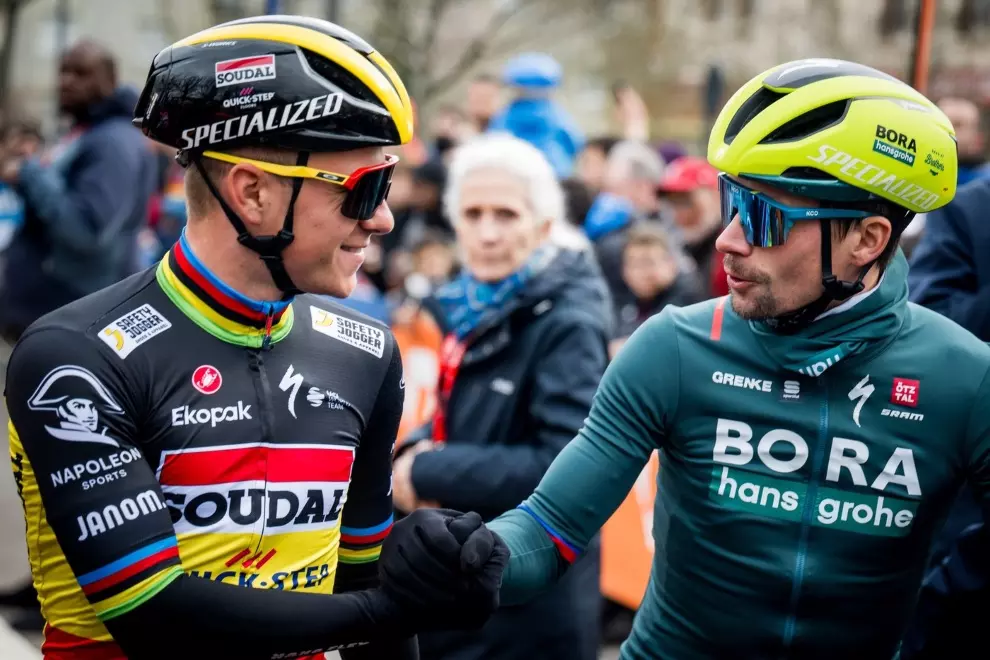Unfortunately, when it comes to the environmental impact of events and races, we’ve got a little catching up to do if we’re going to be able to continue promoting cycling as the planet-saver that it has the potential to be. Cycling races have become a huge business, and with thousands of people adding litter and traffic to streets and trails at major events, the consequences aren’t exactly negligible. From paper registration forms and single-use cups to leftover food and the impact of people travelling to events, races can be significant environmental stressors. The good news is that improvements are possible and many major events are already deciding to make changes.

To put things into perspective—take the recent response from Tour de France director Christian Prudhomme, after environmental groups condemned the avalanche of plastic the tradition generates. Pointing out that the range of trinkets generated by the infamous caravan alone is vast, with companies flinging bottles of water, keyrings, cycling hats, plastic rain ponchos, wristbands, badges, toys, most of which are made out of, or are wrapped in, plastic, there were strong calls for reform. Prudhomme’s letter of response, in the sports daily L’Equipe, was prompt and stated that sponsors now had to pledge to reduce plastic in order to make the event more sustainable. And they will likely have no choice but to comply, as it is no longer just environmental groups asking for change. Now more than ever, potential race participants and spectators are cognizant of the waste impacts of single-use packaging and event-related consumption. They are looking to race directors and asking for a more sustainable event they can feel good about taking part in.
Listening to the demands for change, RideLondon is one example of an organization stepping up to the plate and proving that a cycling event can happen without the use of environmentally devastating single-use plastic. In a worldwide first, they will go plastic-bottle free and from 2019 onwards, single-use plastic bottles will be scrapped for riders. The organisers will instead provide tanks containing water across a series of refuelling hubs that are stationed along the course. Spectators will also have access to drinking fountains to enable them to refill their own bottles. In further attempts to reduce their environmental impact, the organisers are also reducing the use of goody bags and are creating a dedicated zone for litter dropping during the race.

Another race demonstrating that they have a commitment to decreasing their impact on the environment is the Woman’s Tour of Scotland. The event will present a 350-km-long route over three days and will feature a leader’s jersey that is made from recycled plastic. A declaration to environmental sustainability, the gesture is significant as the organization kicks off their first race. Another plus for this event—they have announced a partnership with Voxwomen to provide daily broadcast packages for the event, which starts next Friday in Dundee.
Demonstrating that the Women’s Tour of Scotland is not alone in their promotion of both women’s cycling and sustainability, the Colorado Classic is also taking a bold stance. In addition to asking fans to join their movement and take a pledge for creating more opportunity for women in pro cycling, they’ve committed to becoming the greenest pro cycling race in North America. With a long list of initiatives supporting energy efficiency, water conservation, resource management and sustainable transportation, the race has been awarded “Certifiably Green” status by the City of Denver. They’ve also partnered with Scraps—a woman-owned and pedal-powered compost pickup service based in Denver. Scraps will pick up all compostable trash, by bicycle, from events sites across the city. In their effort, they hope to divert at least 60 per cent of their waste from landfills to composts and recycling.

As new races work to establish themselves as important forces for sustainability in cycling, it is great to see gender equality as another one of their top priorities. Making a race viable and attracting a larger audience isn’t just about ‘going green,’ but setting a positive example across the board. Sports are a microcosm of society and inherently reflect its virtues and vices. If through sport, directors, administrators and coaches strive to new, more conscious ideals about how we value the planet and diverse athletes, perhaps the general public will look to represent it. Until then, it is encouraging to see race directors and organizers taking advantage of the platform at their disposal to spread a positive example for what we could do better.




